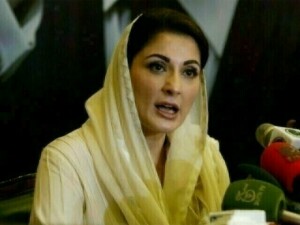HNP seminar on budgets review: 'Zero allocation for development of informal sector'
The state is supposed to protect the vulnerable and the poor but unfortunately it is protecting those who can protect themselves. Besides, the government policies are framed in a way that they protect the interests of the privileged few instead of the masses who have entered into a social contract with it.
These observations were made at a seminar titled "Review of 2014-2015 National and Provincial Budgets of Pakistan- Creating Spaces for vulnerable and poor segment of society." The event was arranged by Home Net Pakistan (HNP) at Hospitality Inn, Egerton Road, Lahore on Friday.
The seminar provided an opportunity to the participants to review the Punjab budget for the current fiscal and discuss the allocations made for different sectors, especially social protection of citizens and development of the informal sector of the economy. The topics which came under discussion included the processes for the inclusion of recommendations for the informal sector in the upcoming provincial budget, engagement of the legislature and the executive in the budget-making process, the budgetary allocations for vulnerable and poor segments of the society. The emphasis was also on the establishment of monitoring mechanisms for ensuring transparency and accountability in allocation and utilisation of resources for the social sector.
Renowned economist Dr Qais Aslam gave an overview of the budget and said it was neither labour-centric nor gender sensitive. The reason for this, he said, was that the budgets were made by people who had their own priorities. He shared it with the participants that Punjab Public Sector budgetary allocations and expenditures for development of informal sector, gender issues and Home Based Workers were zero in 2014-15.
Similarly, he said Sindh government would also be spending rupees one billion (0.15 percent of the entire Sindh budget) on low cost housing and nothing on poverty alleviation programme and/or rural works program in the province during 2014-2015.
He suggested that all the budgetary documents that initiate the budgetary process in the first place should be gender-sensitive and poor-sensitive. Besides, all the budgetary documents should abide by the economic and human right clauses of the Constitution of Pakistan in order to end disparity in the country. All the gender-sensitive and equality related laws and international commitments should be made part of the budgetary process for better service delivery, he added.
Dr Qais said though there were huge allocations for different sectors the fate of around 56 million HBWs was still hanging in the balance. He said the social government had announced a minimum wage of Rs 12,000 but there was no mechanism in place to ensure its payment in the informal sector.
He observed it was too difficult to implement that decision in the informal sector when even the workers in the formal sector were not getting minimum wage. He said he had remained member of the minimum wage board for a good six years but unfortunately minimum wages could not be ensured during this time. He said they would write letters to the concerned authorities but they would not bother to reply.
Dr Misbah Tanveer Chaudhry, Associate Professor, Suleman Dawood School of Business, LUMS, shared it with the participants that the informal sector of Pakistan accounted for 73.6 percent of total employment whereas formal sector generated 26.4 percent employment.
She said Pakistan's informal economy was believed to have grown to more than half the formal economy, yielding GNP of 36.8 percent. According to an assessment, she said, the informal economy expanded at the rate of nine percent from 1977 to 2000.
She said despite being in such large number, the workers in the informal sector had no legal status, they were paid less, had long working hours, were exposed to unhealthy work environment and had no access to financial resources. Therefore, she said there was need to make budgets labour-friendly.
Executive Director, Home Net Pakistan said the federal and provincial budgets would be finalised in the next couple of months. Therefore, she said, it was right time that a debate should be initiated on that topic, gaps identified in the previous year's budget and recommendations forwarded to those working on the next year's budget.
Ume Laila said the parliamentarians and the civil society should question the periodic revision in budgets, diversion of funds allocated for one department to the other, non-utilisation and lapse of funds earmarked in the budget and question block allocations made under different heads. Salman Abid, Regional Head, SPO Pakistan said the budget was no more a financial document, adding it had become a political document and caters to the political ambitions of the ruling elite.






















Comments
Comments are closed.